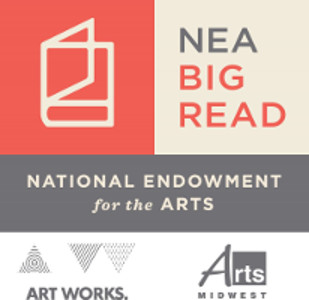 Citizen: An American Lyric by Claudia Rankine
Citizen: An American Lyric by Claudia Rankine
Get the book
Enoch Pratt Free Library has unlimited e-book copies available from Maryland’s Digital e-Library. (Don’t have an Enoch Pratt Free Library card? Any one in the State of Maryland can apply and receive one.)
The first 100 attendees at our kickoff event on February, 7, 2019 will receive a free copy.
RLB Library at the University of Baltimore has multiple copies available to borrow.
Use the book
Reading Guides
University of Baltimore’s Reading Guide to Citizen : Adapted with permission from Grand Valley State University’s 2015-2016 Community Reading Project by Maureen Wolverton and Jennifer Jameslyn
Project Ideas
- Create your own reading guide
- Create a collage of images in response to a section of the text
- Respond to literary criticism of Citizen
- Compare Rankine’s work to another work describing experiences in America. How do they compare?
- Write a poem or essay about your own experience with racism and/or microaggressions.
- Identify a topic that Rankine addresses and investigate issues related to that topic in Baltimore City.
- Investigate and report on the history of citizenship as it relates to an underrepresented group.
- Analyze relevant movies, TV shows, music, or other media for similar themes and experiences.
- Create a game that allows players to navigate, experience or respond to the incidents described in the text.
About the book
Excerpt from NEA Big Read :
Claudia Rankine’s Citizen: An American Lyric, published by Graywolf Press in 2014, is the first work of poetry to become a New York Times bestseller for multiple weeks on the paperback nonfiction list. It won the National Book Critics Circle Award in poetry, and was also a finalist for the award in criticism, the first time in the history of those awards that a book was named a finalist in more than one category. “A classic that will be read, referred to and reflected on for generations” (Lit Hub), Citizen is a genre-bending work of art combining lyric prose with internal monologues, visual art, slogans, photographs, quotes, a screen grab from YouTube, and film scripts. It is a touchstone for talking candidly about racism. And it is a time capsule of contemporary headlines and key figures, with references to, among other things, Hurricane Katrina, the tennis champion Serena Williams, the 2006 World Cup, and the fatal shooting of Florida resident Trayvon Martin. “So groundbreaking is Rankine’s work that it’s almost impossible to describe,” writes the Los Angeles Times. It “forces you to observe: what’s outside the window, what’s on the television, what’s at the margins of the painting, and what’s happening—whether you admit it or not—at the margins of your mind” (The Believer).
Through a series of vignettes, the book recounts everyday moments of racism “of a kind that accumulate until they become a poisonous scourge: being skipped in line at the pharmacy by a white man, because he has failed to notice you in front of him; being told approvingly, as a schoolchild, that your features are like those of a white person; being furiously accosted by a trauma therapist who does not believe that the patient she is expecting could look like you” (The New Yorker). “I started working on Citizen as a way of talking about invisible racism—moments that you experience and that happen really fast,” Rankine told The New Yorker. “They go by at lightning speed, and you begin to distrust that they even happened, and yet you know that you feel bad somehow.” She asked friends to share stories of those moments, and then combined them with stories of her own moments and those she observed in our culture. “We are social animals, ” she told The Spectacle. “We want connection. We want … understanding. We want intimacy. But if the terms of that intimacy feel dishonest, or feel only possible with the acceptance of your erasure, then that’s painful.” Rankine frequently uses the second person “to say, ‘Step in here with me, because there is no me without you inside this dynamic'” (Buzzfeed).
